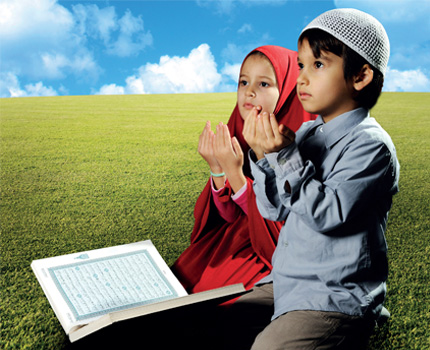 With Ramadan just around the corner and all schools getting ready to close for summer holidays, many Muslim children will be fasting for the first time. HEALTH explains the best ways to help your child get through their fasting comfortably….
With Ramadan just around the corner and all schools getting ready to close for summer holidays, many Muslim children will be fasting for the first time. HEALTH explains the best ways to help your child get through their fasting comfortably….
Children asserts nutritionist Lovely Ranganath, are required to fast from the age of puberty, which is not harmful. “Prior to puberty it is not obligatory. Fasting before this age is tolerated differently depending on the child’s general health, nutrition and attitude,” she says. Fasting under the age of seven or eight is not advisable. “During this age group, it is possible to introduce children gradually to fasting,” says Ranganath.
An Introduction
Fasting is usually introduced to children as a half-day ritual. As long as the child is in good health, Ranganath says that the child can be introduced to fasting. “Once they master the half-day they move on to full non-consecutive days until they eventually learn to fast the full month,” she tells, then the time can be increased gradually. “It is a good idea to make children aware of the practice of fasting and to practice fasting a few hours at a 10 year old child can medically handle the fast.” It is difficult for many young children to fast when they have to wake
up early, concentrate at school, do homework and train in sports. Some have systems that can handle it early on and some just don’t. Parents are the best judges when it comes to determining whether children are ready to fast since they know their child’s health.
To Begin
There are many ways to educate children about Ramadan and the best way, says Ranganath, is to set an example by fasting properly. “Compulsion is out of the question,” she says, adding, “Forcing young children to fast will not help develop their inner selves. Instead it can cultivate negative traits like hypocrisy, lying, cowardice and deceit.” Positive reinforcement, she advises, works wonders and can make it much easier to get them to fast. “Praise and encouragement are strongly recommended,” she says, adding, “The gradual approach is to be used when introducing children to fasting.” Do not expect a small child to fast a full day from the onset. “Increase the duration of the child’s fast in increments, according to the child’s age and ability,” she says. “Having a religious and celebratory air at home is also helpful since the child can sense the importance of this month by making it different and special from the other months of the year,” she suggests, and even if they are not fasting, children can cease eating and drinking a few hours before sunset and sit down to Iftar with their families.
What to Eat
When it comes to balanced food, Ranganath says that the principles of good nutrition hold true for those who are fasting. “Children can be encouraged to have a healthy diet and this is easily attained if one is choosing foods from each of the food groups namely the grain group, fruit and vegetable group as well as the meat and dairy group,” she says. “Children should be encouraged to stay away from foods
containing too much sugar/fats/ salts and caffeine such as cola.” For school going children, special emphasis should be placed on calcium intake. Getting children to drink milkshakes or yogurt-based smoothies is an excellent way to boost calcium intake. School children also need plenty of iron for making blood and lean muscle.

